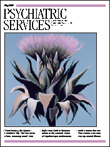Secret Girl: A Memoir
The back cover of Molly Bruce Jacobs's Secret Girl: A Memoir is intriguing. At age 38, Ms. Jacobs sets out to meet her sister Anne, whom she has never seen. Anne, diagnosed at birth with hydrocephalus and mental retardation, is never brought home. She is raised instead in institutions and group homes, while Ms. Jacob's other sister, Anne's twin, is brought home to join the family. The cover promises to reveal how the author "gains surprising insights about herself, including why she drank for most of her adult life" and even to shed light "upon the struggle for human connection that we all share, and upon the need to accept one's limitations, as well as to learn forgiveness."
It is sad to say, but I found that the book fell short of these lofty expectations. Though Ms. Jacobs, nicknamed "Brucie," clearly does make some personal gains through her reunification with her sister, the book is more a chronicle of her sister's resilience and unswerving good nature than of any transformation of the author.
When Brucie and Anne first meet, Anne greets her with the words, "I missed you, Buddy. How was your vacation?" This becomes her refrain on subsequent visits. At the end of the book, Brucie reflects that these are words of forgiveness. She is impressed that Anne does not judge, blame, or recriminate. She does not speculate about why Anne retains this positive outlook and seemingly attributes it to her limited cognitive abilities. Likewise, she marvels at Anne's ability to be spontaneous and to act without regard to what others think of her. Although she attempts to recreate Anne's past by visiting many of the places where Anne grew up, Brucie comes to no conclusion as to how Anne's experiences shaped her personality. She reflects on the difficulty she herself faced with her own less than perfect parents but seems to gloss over the difficulty Anne faced without any parents at all.
Overall, I found the memoir emotionally unsatisfying. Particularily telling for me is the question of Anne's moving into Brucie's home. This issue comes up several times, and then at a team meetingthe group home director raises the question with Anne present. There is silence, but that evening, Anne calls Brucie and for the first time asks to come for an overnight visit. Brucie enjoys the visit and says, "I felt more at ease with Anne than ever before…. For once, I was completely present."
When she returns Anne to the group home, Anne cries, something else she had never done before. Brucie fails to make any connection between these new behaviors and Anne's poignant desire to live with her and notes only "As much as I hated to see her cry, it was probably good for her." I finished the book filled with frustration and sadness that Brucie remained so disconnected from Anne despite her assertions to the contrary.



